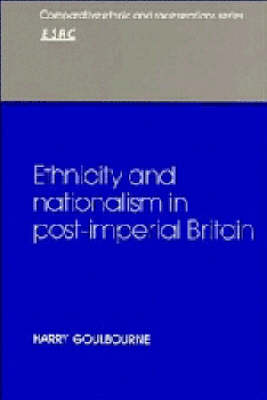Comparative Ethnic and Race Relations
1 total work
Harry Goulbourne's theme is how post-imperial Britain has come to define the national community in terms of ethnic affinity, instead of a traditional multi-ethnic/multi-racial understanding of the nation. He argues that the continuing 'reception-experience' of non-white groups in post-war Britain not only arose out of an ethnic perception of the British nation by the indigenous population, as expressed through state action, but has also, in turn, encouraged an equally ethnic awakening or mobilisation among non-white minorities. The result is a failure to construct a common national ground or sense of community by all those claiming a formal British identity. Goulbourne draws upon a diverse literature, including race relations, politics and history. His two case studies of the Khalistan question in the Punjab and democracy in Guyana are examples of how exilic politics may affect Britain's ethnic minorities, partly as a result of the experience of exclusion from British society.
